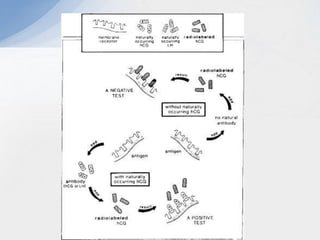

MaterniT Genome, Panorama with microdeletions, Qnatal Advanced with optional microdeletions), and for other indications not listed above Measurement of cell-free DNA for fetal genotyping for RHD (e.g., Sensigene), screening of micro-deletion syndrome, micro-duplication syndrome, and rare autosomal trisomies (e.g., trisomy 2, 5, 7, 8 (Warkany syndrome 2), 9, 12, 14, 15, 16, 17 and 22) (e.g.Maternal Fetal Screen I T1 (Eurofins NTD, LLC).Evaluation of DSCR4 gene methylation in plasma for non-invasive prenatal diagnosis of fetal aneuploidy.The following procedures are considered experimental and investigational because the effectiveness of these approaches has not been established: Aetna considers NIPT not medically necessary for pregnant women who have previously had a multiple serum marker screening test with or without fetal nuchal translucency ultrasound that is negative for fetal aneuploidy during the current pregnancy.
Sequential testing during pregnancy gender plus#
Aetna considers non-invasive prenatal testing (NIPT) using measurement of cell-free fetal nucleic acids in maternal blood (e.g., ClariTest Core (chr 21, 18,13, X,Y), MaterniT21 PLUS Core (chr21, 18, 13) NO Gender, MaterniT21 PLUS Core (chr21, 18, 13, X, Y), Panorama Prenatal Test (chr21, 18, 13, X, Y only), QNatal Advanced (21, 18, 13, X and Y), Verifi Prenatal Test) medically necessary for screening for fetal aneuploidy (trisomy 13, 18 and 21) in all pregnant women.Multiple serum marker testing is considered medically necessary for women who decline these more invasive procedures. Preventive Services Task Force and the American College of Obstetricians and Gynecologists, women aged 35 and older who desire information of their risk of having a Down syndrome fetus should have chorionic villus sampling (CVS) or amniocentesis for detection. This Clinical Policy Bulletin addresses serum and urine marker screening for fetal aneuploidy.Īetna considers multiple serum marker testing (dimeric inhibin A, human chorionic gonadotropin (hCG) with maternal serum alpha-fetoprotein (MSAFP), and unconjugated estriol) medically necessary for pregnant women who have been adequately counseled and who desire information on their risk of having a Down syndrome fetus.Īccording to recommendations of the U.S. Published by Elsevier Ireland Ltd.Number: 0464 Table Of Contents Policy Applicable CPT / HCPCS / ICD-10 Codes Background References Ten years after the first feasibility study, the French National Authority for Health (HAS) released a technological assessment report on the determination of fetal sex in maternal blood, which has resulted in validating this test for reimbursement by the national health insurance fund for the following indications: X-linked recessive disease and congenital adrenal hyperplasia.Ĭongenital adrenal hyperplasia Fetal DNA Fetal sex Maternal blood X-linked recessive disease.Ĭopyright © 2013. Based on this review, we conclude that fetal sex can be determined with a high level of accuracy by analyzing cffDNA and at an earlier gestation than ultrasound.

We found a sensitivity and specificity of nearly 100% from 8 weeks of gestation for cffDNA and from 13 weeks of gestation for ultrasound respectively. Sixteen reports of the determination of fetal sex in maternal blood and 13 reports of the determination by ultrasound met our inclusion criteria.

We applied a sensitive search of multiple bibliographic databases including Pubmed (MEDLINE), EMBASE, the Cochrane Library and Web of science between 19. We present the feasibility of the two methods and their impact on clinical practice. We performed a review of the published literature evaluating the use of cffDNA and ultrasound for prenatal determination of fetal sex during the first trimester of pregnancy. Fetal sex can be diagnosed by ultrasound with the same sensitivity and specificity, but later in pregnancy. This procedure can significantly reduce the number of invasive procedures for women with fetuses at risk of sex-linked diseases and optimize the management of these pregnancies.
thumb.jpg)
The demonstration of cell-free fetal DNA (cffDNA) in the mother's blood has made it possible to identify Y chromosome sequences in maternal blood and to determine fetal sex noninvasively, during the first trimester. Early prenatal diagnosis of fetal sex is necessary to optimize pregnancy management in families known to be at risk of some heritable disorders.


 0 kommentar(er)
0 kommentar(er)
